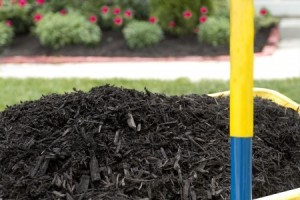 Every gardener with a green thumb knows mulch is a valuable addition to garden beds and to shrub and tree bases. Mulch offers a most versatile list of benefits to plant life and root structure. But what exactly makes mulch such a commodity to trees and shrubberies is countless and even a little surprising.
Every gardener with a green thumb knows mulch is a valuable addition to garden beds and to shrub and tree bases. Mulch offers a most versatile list of benefits to plant life and root structure. But what exactly makes mulch such a commodity to trees and shrubberies is countless and even a little surprising.
The main component making mulch distribution so beneficial to curating and encouraging healthy plant life is the organic decomposition. Steam emanating from mulch, especially large and heaping mounds of it, is the strongest indication of decomposition. This composition is crucial for adding nutrients to soil, contributing greatly to the health of shrubs and trees.
Mulch is also incredibly healthy for trees and a shrub as it allows the soil underneath to retain moisture. Is mulch degrades further and further, its moist byproduct leaches into the soil, keeping root structure healthy. The moisture acts as a vehicle for the nutrients, allowing roots to absorb them from the mulch and the earth. This is fundamental to helping trees grow and maintain a healthy intake.
The benefits mulch brings to tree growth are nearly insurmountable. Nutrients and moisture are useless to a plant root structure without optimal temperature. Acting as very efficient insulation during colder months, mulch protects root structure from the biting cold of winter. Likewise, it helps keeps roots cooler during the scorching hot summer months, regulating soil temperature year round.
In addition to the three factors in botany cultivation- temperature, moisture and nutrition- mulch suppresses weed growth, depriving potential seedlings of sunlight. This adds a component of aesthetics to any front yard, keeping unsightly dandelion at bay. In addition to function, mulch adds form in a range of colors, adding an aesthetic element to your shrubbery and landscape.
If you need help with the grounds management of your home, VistaPro Landscape & Design is here to help.
